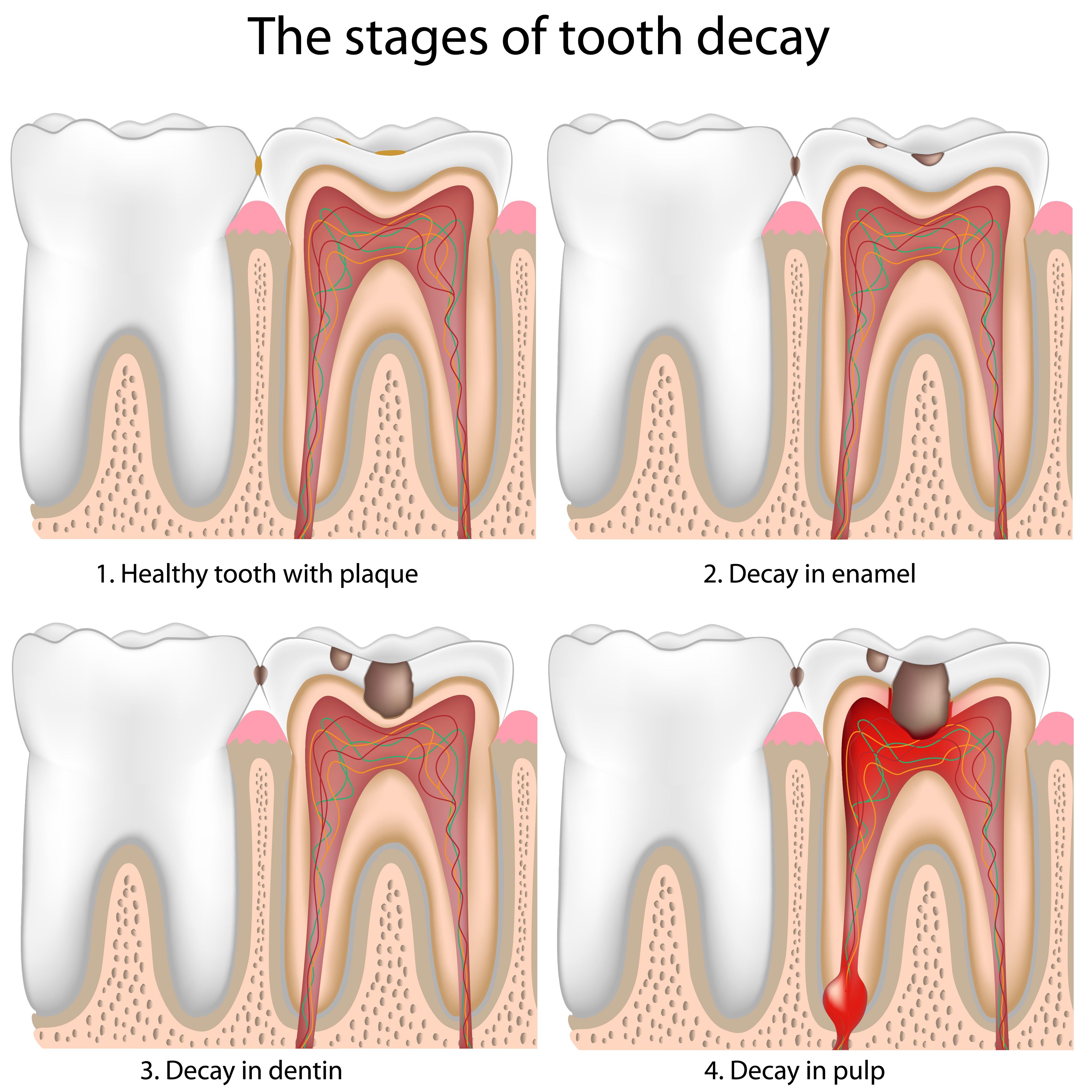The Stages of Tooth Decay: What Do They Involve?
 Cavities don't show up all at once. They progress in stages, posing different health problems as they develop. Thankfully the team at our Orland Park practice offers a comprehensive array of dental services that can address tooth decay in its various forms.
Cavities don't show up all at once. They progress in stages, posing different health problems as they develop. Thankfully the team at our Orland Park practice offers a comprehensive array of dental services that can address tooth decay in its various forms.
Many people have a poor understanding of the nature of tooth decay. Let's go over the various stages of tooth decay right now. It will help you understand the importance of preventative care and early treatment.
Stage One: The Initial Lesion
The first stage of tooth decay is the formation of an initial lesion. This does not show up as tooth decay per se in an x-ray, but it is a sign that the tooth enamel has experienced some amount of demineralization. The telltale sign of this is slight tooth discoloration, typically brown or white.
At this stage of tooth decay, various treatments can prevent a full-blown cavity. Dental sealants, fluoride treatments, and other in-office procedures are helpful in this regard. Patients will be encouraged to practice diligent at-home care to supplement professional treatment, which includes regular brushing and flossing.
Stage Two: Enamel Decay
The next stage of tooth decay is when an actual cavity forms. The oral bacteria eats away at the tooth enamel, the topmost layer of a tooth's structure. This damage to the enamel is a cavity. Failure to treat a cavity early means the potential for further development and weakening of a tooth's structure.
Treating enamel decay typically means the use of a dental restoration. Dental fillings, inlays, or onlays may be used depending on the extent of the decay. These restorations improve the strength and health of a tooth.
Stage Three: Dentin Decay
Beneath the tooth enamel is a porous layer of tooth structure known as dentin. When a cavity develops beyond the enamel layer, it can lead to decay of the dentin. This kind of tooth decay tends to spread/progress rapidly given the porous nature of the dentin. Patients often notice tooth sensitivity when dentin decay occurs.
Inlays, onlays, and crowns are common when treating dentin decay. These restorations protect the tooth from further damage and help reduce sensitivity by concealing the dentin.
Stage Four: Dental Pulp Infection
Inside of every tooth is substance known as dental pulp. This pulp consists of blood vessels, nerves, and connective tissue essential for the initial formation of a tooth. It's possible for this soft tissue to become infected from advanced tooth decay, which causes a painful condition known as a root canal infection.
When a root canal infection occurs, endodontic therapy is performed to save the tooth. This means removal of the diseased dental pulp, filling the inner chamber of a tooth, and capping the tooth with a crown.
Stage Five: Formation of an Abscess
If an infected tooth goes untreated, it's possible for an abscess to form around the tooth. An abscess is a collection of pus, and it can be extremely dangerous if the abscess ruptures or bursts.
Dealing with an abscess requires professional care. The abscess must be carefully drained, followed by the use of antibiotics to help prevent potential infection and other problems after the pus is removed. If a tooth is so decayed it is unable to be saved, extraction may be recommended.
Contact Premier Dental & Implant Center
For more information about treating cavities and tooth decay, be sure to contact our advanced restorative dentistry center today. We look forward to your visit and discussing these matters in much greater detail.

